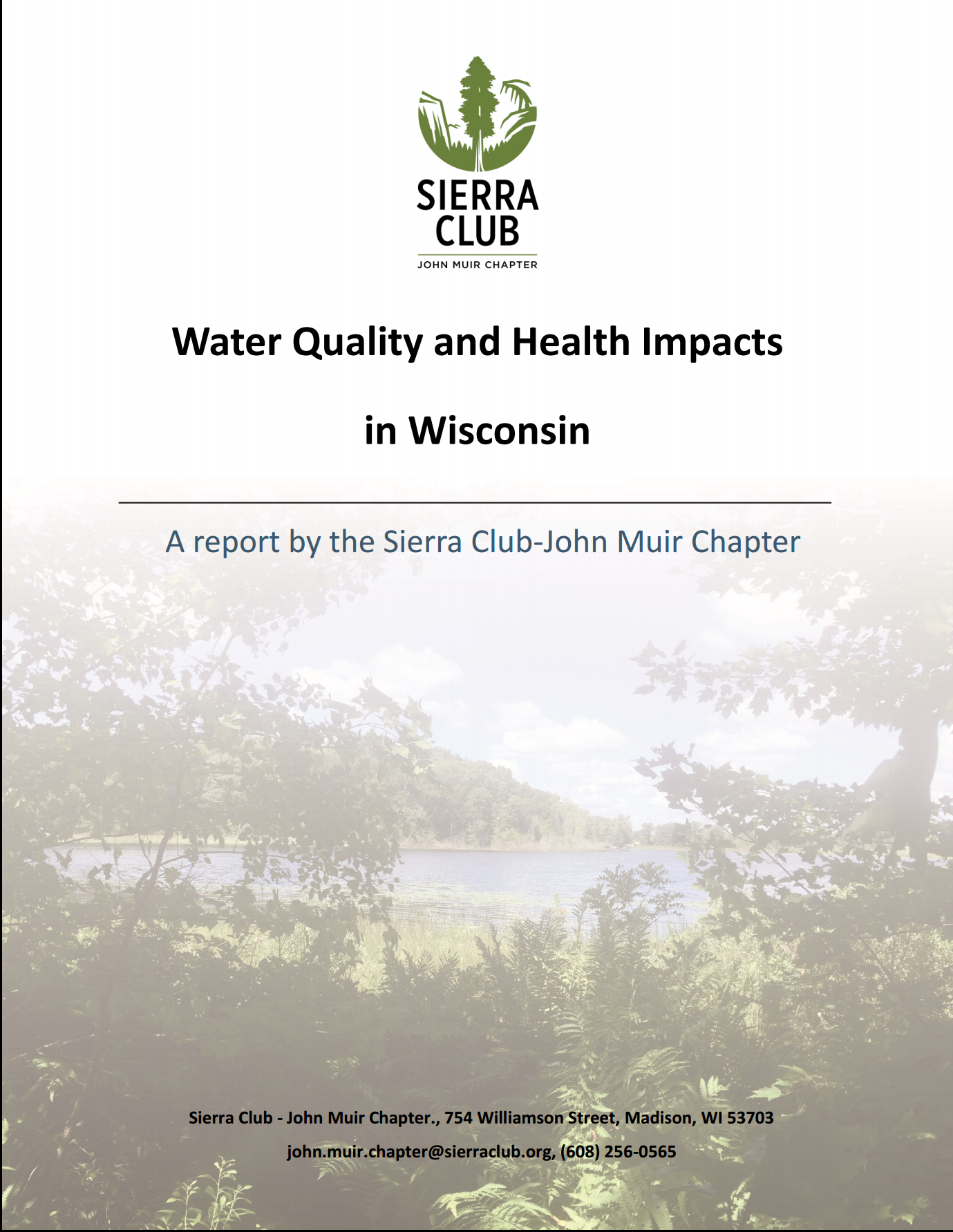"Last I checked, Wisconsin has not yet qualified as a 'third world' state. As a pediatrician, I think all children and their families deserve to be able to drink safe, clean tap water."
-Ann Behrmann, Pediatrician in Madison.
Steering Committee member,
Wisconsin Environmental Health Network
This quote represents one of the many concerned Wisconsinites who are gathering today to elevate the water issues we have right here in Wisconsin. Today, on World Water Day, we were reminded that you don't have to look far to find polluted water and places where access to safe, clean drinking water is threatened. People gathered around the state to showcase the water issues we have right here in Wisconsin. Speakers, including Senator Miller in Madison, Alderman Jim Bohl in Milwaukee, and Representative Jill Billings in La Crosse highlighted the local concerns that accompany polluted water. Four events were held around the state in Bayfield, La Crosse, Milwaukee, and Madison.
“Wisconsin’s water resources are vast, but also very vulnerable. Right here in the Coulee Region, people are suffering from potential water pollution from nitrates, bacteria, and agricultural chemicals such as glyphosate,” said local farmer and educator Ana Skemp, who spoke at the event. She continued, “I would encourage everyone to research local drinking water quality in their wells or in municipal supplies and to demand rigorous regular testing.”
The United Nations (UN) established World Water Day in 1992 in order to remind the world about the importance of protecting our freshwater resources. The day was tied to the UN’s goal of making sure everyone has access to safe water by 2030. In Wisconsin, there are real threats to ensuring everyone has access to safe drinking water, including lead pipes, nitrate pollution, bacteria, parasites like cryptosporidium, and pharmaceutical pollution.
'Blue' Paper Release: Water Quality and Health Impacts in Wisconsin
The Sierra Club-John Muir Chapter also released Water Quality and Health Impacts in Wisconsin, a ‘blue’ paper on some of the drinking water issues we face in Wisconsin and policy recommendations to correct them, including the passage of the Water Sustainability Act, co-sponsored by Senator Mark Miller and Representative Cory Mason.
There are several bills that have been introduced in the legislature that could impact drinking water. Some, like the “Water Sustainability Act”, authored by Senator Mark Miller and Representative Cory Mason and the ‘Leading on Lead’ bill authored by Senator Robert Cowles and Representative Jeremy Thiesfeldt look to identify solutions to some of the concerns. Unfortunately, others like Senator Fitzgerald’s latest high-capacity well bill could perpetuate existing problems and cause future drinking water problems. More information about these and other bills are available in the blue paper.
“The science exists for Wisconsin to manage our water resources so the reasonable use doctrine is fully realized; that every person has a right to use water, but not to the point where it denies others,” said Senator Mark Miller. “The Water Sustainability Act will make sustainable water use a reality in Wisconsin.”
“I’m alarmed that the ‘regulatory certainty’ given to agribusiness by our elected officials is allowing 26,000 Iowan hogs and their 10 million gallons of manure to set up shop 8 miles from Lake Superior, in the watershed that provides water for the City of Ashland and its 8,100 residents. That’s just not right,” expressed Mary Dougherty, co-founder of Farms not Factories.
Phosphorus
• Excess phosphorus in our water resources can cause algal blooms, including blue-green algae
• Oxygen depletion due to the algal blooms may lead to large-scale fish die-offs
Bacteria and Cryptosporidium
• Coliform bacteria can cause severe illness and have contaminated 420 public water systems
• Cryptosporidium bacterial groundwater contamination is caused by sewage overflows, often from concentrated animal feeding operations (CAFOs), where large quantities of manure are stored
Nitrate
• Nitrate exposure may cause or blue-baby syndrome, as well as birth defects
• 94,000 households in Wisconsin have unsafe levels of nitrate in their drinking water.
• 1 in 5 wells in heavily agricultural areas are too polluted with nitrate for safe drinking
Radium
• Radium is a known carcinogen associated with cancers of the breast, bone and liver
• 25 water systems have exceeded maximum contaminant levels for radium, a known carcinogen, in the last two years in Wisconsin
Pharmaceuticals
• Wisconsin’s DNR has found traces of pharmaceuticals in multiple water supplies across the state
• A UW-Milwaukee study revealed high levels of pharmaceuticals in Lake Michigan, from which millions of Wisconsinites get their drinking water.
• While human effects are still being studied, estrogen-mimicking compounds in birth control have been shown to actually change fish sex ratios
These and other serious threats exist due to the lack of protection for water resources. Solutions exist, such as pharmaceutical drop boxes, inexpensive radium filters, and proper management of animal waste, but are not being pursued aggressively enough.
Despite the severity of contaminated water, many of these issues aren’t being address, but should be considered for future legislation. Wisconsinites are relying on lawmakers to do the right thing and to serve their constituents.
Beyond the bills that have already been introduced, including the Sustainable Water Act, the Sierra Club recommends the following water protections:
* Enforcement of existing laws and regulations, particularly regarding phosphorus
* Proper manure storage and management to mitigate health risks from contamination
* Increased sewage and septic system monitoring, maintenance and replacement
* Testing for pharmaceuticals, continued study on the impact of pharmaceuticals in waterways and appropriate removal of pharmaceuticals at water treatment plants
“I am proud to be joining officials with the Sierra Club, an esteemed organization with an outstanding history of important work, to highlight key water issues in Milwaukee, across our state, and across the globe on World Water Day,” said Alderman Bohl, chair of the city’s Water Quality Task Force, “Our work to preserve the purity of our fresh water and our environment is critical and begins right here at home.”
